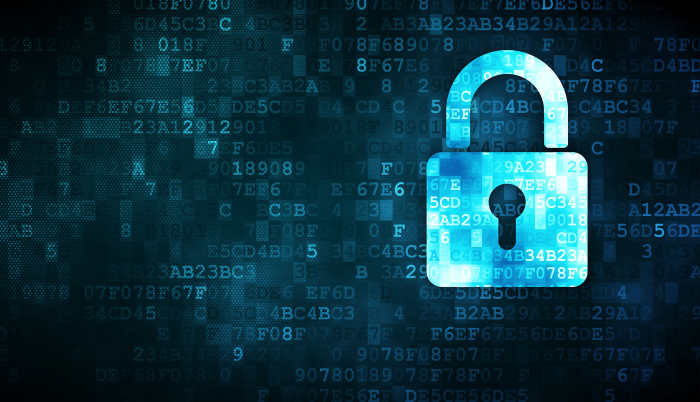
What is the situation with information security in the world and in Azerbaijan in particular?
- Cyber threats today are a global problem affecting individual users, businesses, and states. This trend is also inherent in Azerbaijan. We are increasingly hearing the terms "social engineering", "cyber warfare", and "national cybersecurity strategy". Cyber risks are turning into a time bomb, ready to explode at any moment, and digital trust is under threat. Sophisticated cyberattacks today are carried out by sufficiently qualified attackers and they are mainly interested in geopolitics. The oil and gas industry turned out to be very vulnerable to cyber-attacks. The attack on the Colonial Pipeline in May 2021 showed this perfectly. There is also a serious increase in attacks using encryption programs. They are aimed at industry, the public sector, financial organizations, and telecommunications operators. Thus, information security issues are inevitable nowadays.
What can you say about the connection between information security and journalism?
- If we consider from the point of view of the vulnerability of the media to cyberattacks, then extortion attempts using encryption programs are also common here. Leaks occur mainly due to human factors, although media workers, in theory, should be more aware of existing cyber threats and the possibilities of their prevention. As for the work of the media in the field of information security, the main task is to inform the public about ways to combat cybercrime, options and methods of protection against modern viruses and methods of "social engineering", as well as popularization of such a concept as cyber hygiene. In Western countries, information, for example, about cyberattacks on financial institutions, is becoming available. Banks themselves are interested in reporting possible losses, warning users to take precautions in the future. Unfortunately, such information is carefully hidden in Azerbaijan. I would also recommend that financial institutions distribute basic benefits to users when opening an account about what threats certain methods of "social engineering" may pose and how to respond to them.
What are the pros and cons of technological development for information security?
- Among the advantages of technological progress is the possibility of opening bank accounts and transactions with currencies without the need to visit a bank, telemedicine, the possibility of remote booking of hotels and tickets using mobile applications, the possibility of e-government, and other structures. Of course, these processes have a positive impact on the development of information security systems, but they themselves spur the development of cybercrime. There is no absolute good or evil in this matter. With the digitalization of the processes around us and the development of the Internet of Things, the role of cybersecurity tools will also grow. This is an eternal race, which in the future will only develop on a new scale with the advent of quantum encryption.
What is the foreign and local experience of the impact of technological development on information security?
- If we speak about other countries, the emergence of new companies engaged in the development of information security tools. In recent years, the market has literally been "blown up" by the solutions of relatively young companies Palo Alto Networks, Fortinet, and others, which have made serious competition to such a "whale" of the market as Cisco. Various software and hybrid security solutions are in great demand in the world, including many companies from Israel, the USA, and the UK. As for Azerbaijan, our landscape is also changing. The processes of digitalization in the country have revealed the need to improve education in this area and attract young people to work not just in IT, but also directly in the field of information security. These processes have not been ignored by businesses - more and more companies in the country's market declare themselves and position themselves as integrators in the field of information security. If 3-4 years ago there were 3-4 companies specializing in cybersecurity and information security in Azerbaijan, today their number exceeds 10.
What is the difference between cybersecurity and information security?
- If we speak "according to the dictionary", then cybersecurity is understood as protection against attacks in cyberspace, and information security is the protection of data from any form of threats, regardless of whether they are analog or digital. But today I practically do not see the boundaries between these concepts due to rampant digitalization.
What can you say about the problems of information security in the new media and their causes?
- Lack of funding and little attention to the content created by modern digital media. The main problem is the theft of social media accounts, copyright infringement, etc. But I don't think such problems are something terrible. Of course, for TV channels, getting access to the air by intruders can have disastrous consequences. Therefore, the means of protection here can be the same as in any other organization. The only question is the possibility of acquiring appropriate solutions to ensure cybersecurity and the availability of professional information security teams directly in the institution itself. As for the problems with ensuring information security in the media, I consider the human factor to be the main one.
What is the impact of the Julian Assange and Edward Snowden cases on journalism?
- It is worth starting with the fact that they are an excellent example of the human factor in matters of information leakage and, accordingly, information security. Of course, the information provided by them is of great importance to the world community, but these cases cannot be called a breach in data protection. Assange himself calls hacking "a way of intellectual knowledge of the world," and his "career" began with hacking the Canadian manufacturer of telecommunications equipment Nortel Networks. Of course, Assange's creation of an anonymous platform for publishing classified WikiLeaks data has played a role in freedom of speech issues, so journalists from the world's largest publications The New York Times, The Guardian, Le Monde, El Pais, and Der Spiegel are calling on the US authorities to drop all charges against Assange, but with regard to cybersecurity, this is a real case of how poorly the state archives are protected.
Kamilla Salayeva,
Baku State University, Faculty of Journalism, IV-year student
AzVision.az
More about:















































